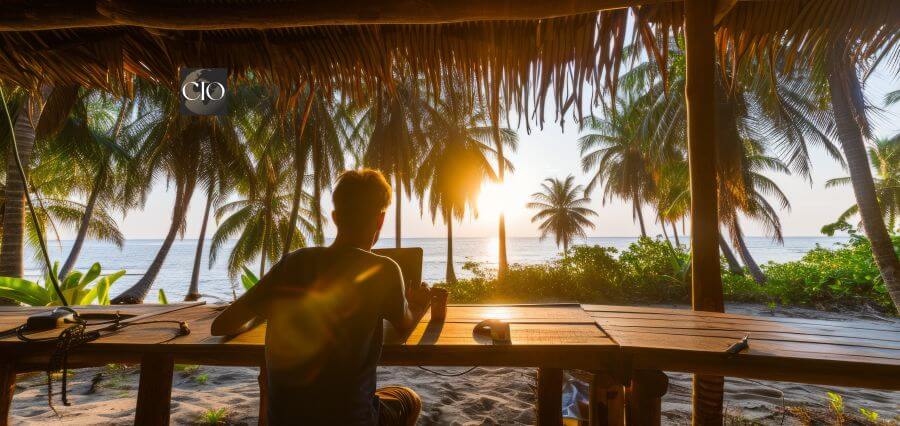The Bahamas, a tropical paradise known for its pristine beaches and crystal-clear waters, is facing unprecedented environmental challenges due to climate change and human activity. However, a new wave of Bahamian entrepreneurs and businesses is rising to meet these challenges head-on, pioneering sustainable ventures that not only protect the archipelago’s delicate ecosystems but also drive economic growth.
Eco-Tourism: Preserving Natural Beauty
One of the most prominent areas where Bahamian innovators are making strides is in eco-tourism. Recognizing that the nation’s natural beauty is its greatest asset, many tour operators are adopting practices that minimize environmental impact while educating visitors about the importance of conservation.
For instance, Exuma Watersports has introduced solar-powered boats for their popular swimming pig tours. Owner Raymond Lightbourn explains, “By switching to clean energy, we’re reducing our carbon footprint and setting an example for other operators. Tourists love knowing they’re exploring our waters without harming them.”
Similarly, the Bahamas National Trust has partnered with local communities to develop nature trails and birdwatching tours that promote conservation awareness. These initiatives provide sustainable livelihoods for locals while preserving critical habitats.
Sustainable Agriculture: From Land to Table
As an island nation, the Bahamas has long relied heavily on imported food. However, a growing movement toward sustainable agriculture is changing this paradigm. Innovative farmers are utilizing hydroponic and aquaponic systems to grow fresh produce year-round, reducing the need for imports and increasing food security.
Eeden Farms, located in Nassau, has become a pioneer in this field. Founder Carlos Palacious states, “Our vertical farming system uses 90% less water than traditional methods and allows us to grow crops without pesticides. We’re proving that sustainable agriculture can thrive in the Bahamas.”
In addition to crop farming, sustainable fishing practices are gaining traction. The Bahamas Lobster Fishermen’s Cooperative has implemented a traceability system to ensure their catch meets international sustainability standards, protecting both marine life and the livelihoods of local fishermen.
Renewable Energy: Harnessing the Sun and Sea
With abundant sunshine and being surrounded by the ocean, the Bahamas is ideally positioned to leverage renewable energy sources. Several companies are at the forefront of this transition.
Bahamas Waste has converted its fleet of garbage trucks to run on biodiesel made from cooking oil collected from local restaurants. This innovative approach not only reduces emissions but also solves the problem of waste oil disposal.
Meanwhile, the Bahamian government has partnered with the Carbon War Room to transition several islands to 100% renewable energy. Projects like the solar farm on Ragged Island showcase the potential for clean energy to power the nation’s future.
Sustainable Construction: Building for Resilience
In the wake of devastating hurricanes, Bahamian architects and developers are reimagining construction with a focus on sustainability and resilience. The Sustainable Bahamas Alliance, a coalition of industry professionals, is promoting green building practices that reduce energy consumption and withstand extreme weather events.
One standout project is the Island School on Eleuthera, which features rainwater harvesting, solar power, and innovative waste management systems. The school serves as a living laboratory for sustainable design, inspiring students and visitors alike.
Circular Economy: Turning Waste into Opportunity
Innovative Bahamians are also finding ways to transform waste into valuable resources. Cans for Kids, a non-profit organization, collects and recycles aluminum cans, using the proceeds to fund educational programs. This initiative not only reduces litter but also raises awareness about recycling among young Bahamians.
In the fashion industry, local designer Anya Camille has gained recognition for her line of accessories made from recycled materials found on Bahamian beaches. Her work highlights the potential for creative solutions to environmental challenges.
The Road Ahead
While these pioneers are making significant strides, challenges remain. Limited access to capital, outdated regulations, and the need for widespread education on sustainable practices are obstacles that must be overcome.
However, the momentum is undeniable. As more Bahamians embrace eco-friendly practices and sustainable business models, the nation is positioning itself as a leader in green innovation. These efforts not only protect the Bahamas’ natural treasures but also create new economic opportunities, ensuring a brighter, more sustainable future for generations to come.

